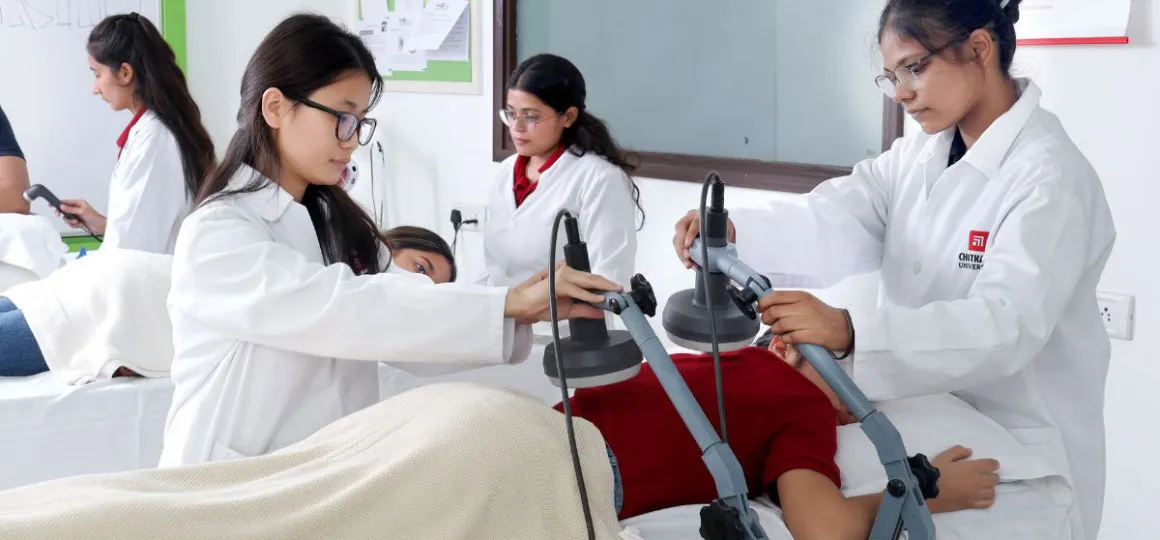Introduction
The medical field has always been synonymous with high earning potential. Armed with years of education and expertise, surgeons, specialists, and doctors continue to rank among the highest-paid professionals in India. Their roles in healthcare are indispensable, warranting substantial compensation.
What is a Medical Professional?
A medical professional is an individual who has received formal education, training, and certification in the field of medicine and is authorized to provide medical care, diagnosis, treatment, and advice to patients. Medical professionals are essential members of the healthcare system, and they work in various roles and specialties to promote and maintain the health and well-being of individuals and communities. Here are some common types of medical professionals:
- Physicians (Doctors):
Physicians are highly trained medical professionals who Carry a Doctor of Medicine (MD) or Doctor of Osteopathic Medicine (DO) degree. They diagnose medical conditions, prescribe treatments, and provide medical care in various specialties, such as internal medicine, surgery, pediatrics, and more.
- Nurses:
Nurses are healthcare professionals who play a critical role in patient care. They may have different levels of education and training, ranging from Licensed Practical Nurses (L.P.N.s) and Registered Nurses (RNs) to Advanced Practice Registered Nurses (APRNs), such as nurse practitioners and nurse anesthetists.
Pharmacists are Specialists in medications and their effects on the human body. They dispense prescription medications, provide medication counseling, and ensure the safe use of drugs.
- Dentists:
Dentists specialize in oral health and as well as dental care. They diagnose and treat dental and oral issues, perform dental procedures, and provide preventive care.
- Pharmacy Technicians and Dental Hygienists:
These professionals support pharmacists and dentists, respectively, by assisting with various tasks, such as dispensing medications or cleaning teeth.
- Surgeons:
Surgeons are medical practitioners with a specialization in performing surgical procedures. They perform surgeries to treat medical conditions and injuries, ranging from minor procedures to complex operations.
- Psychiatrists and Psychologists:
These mental health experts identify and treat mental and emotional disorders. Psychiatrists are medical doctors who can define medications, while psychologists focus on therapy and counseling.
- Physical Therapists and Occupational Therapists:
These Experts help patients recover from injuries, surgeries, or medical conditions by providing rehabilitation and therapy services.
- Radiologists and Medical Imaging Technologists:
Radiologists interpret medical images, like X-rays and MRI scans, to diagnose conditions. Medical imaging technologists perform the imaging procedures.
Pathologists are medical doctors who specialize in studying diseases through laboratory analysis of tissues, blood, and other specimens.
- Emergency Medical Technicians (E.M.T.s) and Paramedics:
These professionals provide emergency medical care, including first aid, transportation, and initial treatment for patients in critical situations.
- Medical Researchers:
Medical researchers perform scientific investigations and clinical trials to push the boundaries of medical understanding and innovate new treatments and therapies.
- Public Health Professionals:
Public health experts work to protect and improve the health of populations through disease prevention, health education, policy development, and epidemiological research.
Where to learn Medical Professional
Becoming a medical professional typically involves formal education and training in a specific medical field. The Way to becoming a medical professional can vary depending on the specific profession you’re interested in. Here are some common steps and resources for pursuing education and training in the medical field:
- Choose Your Medical Career Path:
Determine the specific medical profession you want to pursue, whether becoming a physician, nurse, pharmacist, dentist, therapist, or healthcare professional. Each profession has its own educational requirements and career paths.
- Undergraduate Education:
Most medical professions require a bachelor’s degree as a prerequisite. While the specific major may vary, pre-medical or science-related majors are common for aspiring doctors. You may need a bachelor’s degree in a related field for other healthcare professions.
- Entrance Exams:
You may need to take standardized entrance exams depending on your career choice. For example, aspiring medical doctors in the United States typically take the MCAT (Medical College Admission Test), while dental school applicants take the DAT (Dental Admission Test).
- Graduate or Professional School:
After completing your Bachelor’s degree, you’ll typically need to enroll in a graduate or professional program specific to your chosen medical profession. These programs include:
Medical Schools (MD or DO) for physicians, Nursing Schools for Nurses, Pharmacy Schools for Pharmacists, Dental Schools for Dentists, Physical Therapy, Occupational Therapy, or Speech-Language Pathology, programs for therapists, And more, depending on your chosen profession
- Licensing and Certification:
You must obtain the necessary professional licenses and certifications after completing your education. Licensing requirements vary by country and state, so be sure to research the specific requirements for your location.
- Residency or Internship:
Some medical professions, like physicians, dentists, and pharmacists, require completing a residency or internship program after graduating from professional school. These programs grant hands-on training in a clinical setting.
- Continuing Education:
Many medical professions require continuing education to stay current and maintain licensure. Continuing education credits and requirements vary by profession and location.
- Online Courses and Resources:
Depending on your profession, you may find online courses, webinars, and educational resources to supplement your formal education and keep up with the latest advancements in your field.
- Professional Associations:
Getting involved in professional associations associated with your medical field can offer you access to valuable resources, networking prospects, and avenues for ongoing education. These organizations often offer conferences, journals, and online resources.
- Mentorship:
Seek mentorship from experienced professionals in your chosen field. They can provide guidance, advice, and insights into the profession.
- Clinical Experience:
Gaining clinical experience through internships, externships, or volunteer work in healthcare settings can be valuable in building practical skills and understanding the profession.
Which type of education and degree is required for a Medical Professional
The type of education required for a medical professional varies depending on the specific healthcare career you’re interested in pursuing. Different medical professions have distinct educational pathways and requirements. Here are some examples of common medical professions and their educational requirements:
- Medical Doctor (Physician):
Education: Typically, aspiring medical doctors in the United States complete a Bachelor’s degree followed by four years of medical school (MD or DO).
Residency: After medical school, physicians usually complete a residency program in their chosen specialty, ranging from three to seven years or more.
- Registered Nurse (RN):
Education: Becoming an RN typically involves completing a diploma program, an associate’s degree in nursing (ADN), or a bachelor’s degree in nursing (BSN).
Licensing: Passing the NCLEX-RN (National Council Licensure Examination for Registered Nurses) is required for licensure as an RN.
- Pharmacist:
Education: Pharmacists typically complete a Doctor of Pharmacy (Pharm.D.) program, which usually takes four years after completing undergraduate prerequisites.
Licensing: Pharmacists must pass the NAPLEX (North American Pharmacist Licensure Examination) and a state-specific pharmacy law exam.
- Dentist:
Education: Dentists earn A degree in Dental Medicine (DMD) or Dental Surgery (DDS), typically after completing a four-year bachelor’s program.
Licensing: Dentists must pass national and state dental board exams for licensure.
- Physical Therapist (PT):
Education: To become a PT, you need a Doctor of Physical Therapy (DPT) degree, generally a three-year program following a bachelor’s degree.
Licensing: PTs must pass the National Physical Therapy Examination (NPTE) for licensure.
- Occupational Therapist (OT):
Education: Occupational therapists typically earn a Master’s or Doctoral degree in Occupational Therapy (MOT or OTD), which generally takes two to three years after completing a bachelor’s degree.
Licensing: OTs must pass the National Board for Certification in Occupational Therapy (NBCOT) exam for licensure.
- Speech-Language Pathologist (S.L.P.):
Education: SLPs typically earn a Master’s degree in Speech-Language Pathology (MS or MA), which takes two to three years post-bachelors degree.
Licensing: SLPs must meet licensure requirements, often including passing the Praxis exam in speech-language pathology.
- Medical Laboratory Technician (MLT):
Education: MLTs typically complete an associate’s degree in medical laboratory technology, which typically takes two years.
- Emergency Medical Technician (E.M.T.):
Education: Becoming an EMT typically involves completing a training program ranging from a few weeks to several months, depending on the level (e.g., EMT-Basic, EMT-Intermediate, EMT-Paramedic).
- Radiologic Technologist:
Education: Radiologic technologists often complete an associate’s degree in radiologic technology, which sometimes takes two years or a bachelor’s degree.
What is the scope of a Medical Professional?
The scope of medical professionals is broad and diverse, encompassing a wide range of careers in healthcare. Medical professionals play a vital role in developing and maintaining the health and well-being of people and communities. The scope of medical professionals includes the following key aspects:
- Diverse Career Opportunities:
Medical professionals have many career options, from physicians and nurses to pharmacists, dentists, therapists, laboratory technicians, and more. Each profession has its unique role and responsibilities within the healthcare system.
- Continual Demand:
The demand for medical professionals remains consistently high, driven by factors Like an aging population, improvement in medical technology, and the need for preventive and specialized healthcare services.
- Variety of Specializations:
Each medical profession has numerous specializations and subspecialties. For example, physicians can specialize in cardiology, pediatrics, surgery, or radiology, while nurses can specialize in critical care, oncology, or obstetrics.
- Global Opportunities:
Medical professionals have opportunities to work in healthcare settings worldwide. International healthcare organizations, non-governmental organizations (NGOs), and global health initiatives offer opportunities for medical professionals to make a global impact.
- Interdisciplinary Collaboration:
Medical professionals often work collaboratively with professionals from other healthcare disciplines. Teamwork and collaboration are essential for providing comprehensive and holistic patient care.
- Research and Innovation:
Medical professionals engage in research and innovation to advance medical knowledge, develop new treatments, and improve healthcare practices. Medical research contributes to medical breakthroughs and the development of evidence-based medicine.
- Clinical Practice:
Medical professionals provide direct patient care, diagnosis, treatment, and preventive services. They work in different healthcare settings, including hospitals, clinics, private practices, and long-term care facilities.
- Teaching and Education:
Some medical professionals choose careers in academia, where they teach and mentor future generations of healthcare providers. They may work at universities, medical schools, or training institutions.
- Leadership Roles:
Experienced medical professionals, such as hospital administrators, medical directors, or chief medical officers, can pursue leadership roles within healthcare organizations.
- Health Education and Promotion:
Medical professionals are involved in health education and promotion efforts to educate people and communities about preventive measures, healthy lifestyles, and disease management.
- Public Health:
Some medical professionals work in public health roles, focusing on population health, disease surveillance, health policy, and epidemiology to address public health challenges.
Salary of Medical Professional?
Salaries for medical professionals can vary significantly between India and the United States due to differences in healthcare systems, cost of living, and other factors. Here are approximate salary ranges for some common medical professions in both countries:
India:
- Physicians (Doctors):
Entry-Level Resident Doctors: During residency, salaries for junior resident doctors in India can range from INR 40,000 to INR 70,000 per month, based on the hospital and location.
Attending Physicians (Consultants): Consultant physicians may earn salaries ranging from INR 10 lakh to INR 25 lakh or more annually, depending on their specialization and experience.
- Registered Nurses (RNs):
Entry-Level Staff Nurses: New staff nurses in India may earn monthly salaries ranging from INR 15,000 to INR 30,000, depending on the healthcare facility and location.
Experienced Staff Nurses: Experienced staff nurses may earn higher monthly salaries, ranging from INR 30,000 to INR 50,000.
- Pharmacists:
Entry-Level Pharmacists: New pharmacists in India typically earn monthly salaries ranging from INR 15,000 to INR 30,000, depending on the employer and location.
Experienced Pharmacists: Experienced pharmacists may earn monthly salaries ranging from INR 30,000 to INR 50,000 or more.
United States (US):
- Physicians (Doctors):
Entry-Level Resident Physicians: Salaries can range from $50,000 to $60,000 annually during residency.
Attending Physicians: Salaries for attending physicians vary widely by specialty but can range from $200,000 to over $500,000 or more per year.
- Registered Nurses (RNs):
Entry-Level RNs: New RNs typically earn approximately $50,000 to $70,000 annually, depending on location and experience.
Experienced RNs: Experienced RNs may earn between $70,000 and $110,000 or more per year.
- Pharmacists:
Entry-Level Pharmacists: New pharmacists in the US often earn between $90,000 and $120,000 per year.
Experienced Pharmacists: Experienced pharmacists may earn $120,000 to $150,000 or more annually.









